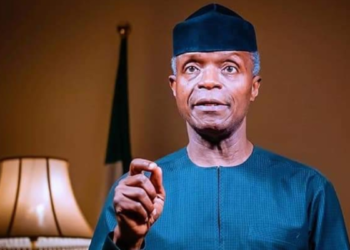The Nigerian Auto Journalists Association (NAJA) has announced that its 2024 Auto Awards will be held on December 11, 2024, at the prestigious Oriental Hotel in Victoria Island, Lagos. The ceremony, set to commence at 6:00 PM, will bring together key stakeholders in the automotive industry, including manufacturers, journalists, and influencers.
Widely regarded as a significant event in Nigeria’s automotive industry, the NAJA Auto Awards celebrates outstanding vehicles, innovations, and individuals that have shaped the sector over the past year. The awards honor achievements in areas such as design, technology, sustainability, and overall industry impact.
In a statement, NAJA emphasized that the awards are the culmination of extensive planning and collaboration with industry experts, ensuring that they remain a credible platform for recognizing excellence in Nigeria’s dynamic automotive landscape.
Theodore Opara, Chairman of the 2024 Auto Awards Committee, underscored the importance of this year’s event, which coincides with a period of significant transformation in the industry.
“We’re thrilled to gather Nigeria’s top automotive brands and innovators on December 11 to celebrate the vehicles and individuals making a difference,” Opara said.
He noted that the 2024 awards would spotlight advancements in electric vehicles (EVs), compressed natural gas (CNG)-powered technology, and other sustainable mobility solutions. “This year’s awards will reflect the evolving industry dynamics and recognize the innovations propelling Nigeria’s automotive sector into the future,” he added.
The event will feature a variety of competitive categories, including Car of the Year, Truck of the Year, Best New Electric Vehicle, Luxury Brand of the Year, and Best Auto Tech Innovation. Additional awards will acknowledge achievements in design, safety, and environmental sustainability.
According to Opara, the selection process will be rigorous, with an expert panel comprising NAJA’s network of seasoned automotive journalists evaluating nominees on criteria such as performance, innovation, environmental impact, and technological advancement.
NAJA Chairman Mike Ochonma also highlighted the rapid changes occurring in the industry. “The automotive sector is undergoing a remarkable transformation, with advancements in electric and CNG-powered vehicles at the forefront. The 2024 awards aim to celebrate the groundbreaking products and companies leading the charge toward a more sustainable future,” Ochonma said.
He reaffirmed NAJA’s commitment to recognizing industry pioneers who are setting new standards and redefining mobility in Nigeria. The awards ceremony promises to be a night of celebration, featuring special presentations and a showcase of the most notable nominees from across the sector.
NAJA Chairman Mike Ochonma also highlighted the rapid changes occurring in the industry. “The automotive sector is undergoing a remarkable transformation, with advancements in electric and CNG-powered vehicles at the forefront. The 2024 awards aim to celebrate the groundbreaking products and companies leading the charge toward a more sustainable future,” Ochonma said.
He reaffirmed NAJA’s commitment to recognizing industry pioneers who are setting new standards and redefining mobility in Nigeria. The awards ceremony promises to be a night of celebration, featuring special presentations and a showcase of the most notable nominees from across the sector.





